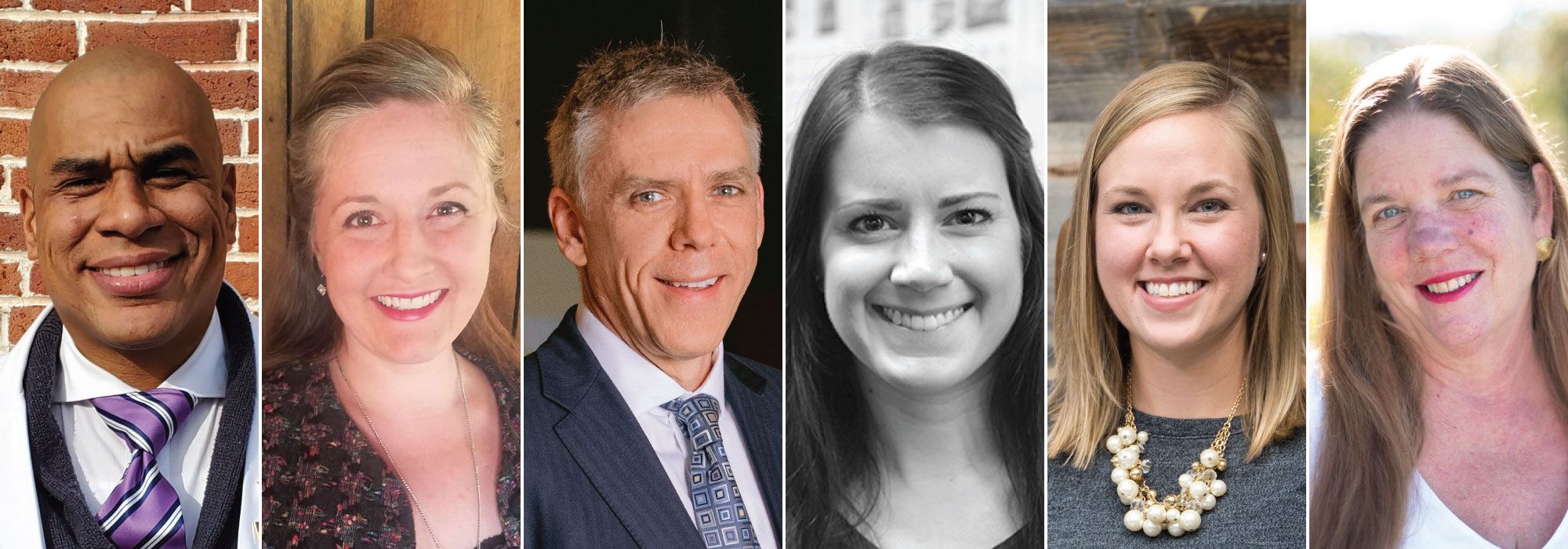
The IDEA Workshop
You’ve got a great idea to market. But do you know how to write a business plan? How to protect your intellectual property? How or why to form a licensed legal corporation (LLC)? Find out at the IDEA Workshop!
by Susan Neale
In October, 95 people signed up to learn more about crafting business plans, perfecting a pitch and finding out how to make their healthcare innovation come to life on the market. The IDEA (Innovation, Design and Entrepreneurship Amplified) Workshop featured a five-hour masterclass, followed by one-hour lunch-and-learn presentations every Friday at noon for three weeks on topics such as small business finance and branding.
This is the sixth year for the IDEA workshop, the brainchild of the College of Nursing’s innovation team, headed by Chief Innovation Officer Tim Raderstorf, DNP, RN. Past workshops allowed participants to network, brainstorm together and chat with guest speakers in trendy spaces like Columbus’s Idea Foundry that naturally seem to foster new friendships and make interaction easy. How to do that online? The IDEA Workshop team found a unique solution: the online meeting platform Sococo. This online workplace looks like a map of a conference center where attendees, represented by icons, can click in and out of meeting rooms at will. In small groups, participants turned on their cameras to see each other and share ideas. In the larger meeting room, participants clicked to join interactive zoom meetings where successful healthcare entrepreneurs gave talks filled with practical advice and encouragement and answered questions.
Entrepreneur Brian Mohika, RN, who owns seven medical device patents, encouraged would-be entrepreneurs not to give up or give in to self-doubt. His book, “Let it Flow,” advises other innovators to build a team, not to try to go it alone, and to ask lots of questions. “I was that one student who was always raising his hand. In business, you need to be that way.”
Taura Barr, PhD, RN, FAHA, the College of Nursing’s entrepreneur in residence, discussed licensing intellectual property and commercializing one’s own research. “Without commercialization, you don’t get your idea out there. Period," Barr said. “Commercialization could be filing an invention disclosure, obtaining a patent, getting a copyright or a trademark. It’s also part of studying the market, knowing how to position your brand and your product, and understanding what impact, what outcome you are going to make.”
Kevin Taylor from The Ohio State University Technology Commercialization Office (TCO) explained how TCO can help an entrepreneur protect their intellectual property. “It’s an incredible, free service that OSU provides to faculty and staff,” he said.
Speakers urged attendees to take risks and follow new pathways, even pursue degrees in new areas. Brittany Merkle, MFA, RN, began her career in urgent and primary care, but her interest in the way services are delivered led to a master of fine arts degree at a design school (SCAD) in service design. “I worried that I was leaving nursing by going into design,” she said, “but I found that nursing wouldn’t leave me.” Now she is a service designer and lead innovation strategist at University Hospitals Ventures in Cleveland.
Jill Raderstorf, MBA, led the audience through a business plan model built for the tech world, the “lean business canvas” to identify their unique value proposition, customer segments, cost structure and other important metrics quickly, all on one spreadsheet.
Pediatric nurse and “serial entrepreneur” PK Scheerle, RN, stressed the importance of seeking out other people for advice, even experts who seem out of reach. “Everybody wants to be helpful and needed and asked. This is your chance to talk to anybody.” Stressing the human side of business, she added, “You don’t build a company: you build people, and they become the company.” Scheerle is CEO of nurse staffing company Gifted Healthcare.
Participants left with a wealth of new information, encouragement and advice, lean business plan templates and 5.3 continuing education credits. Over the next three weeks, they met again at virtual lunch and learn lectures and received a video of the endnote speech in an email. Faced with the challenge of not meeting in person, the College of Nursing's innovation team got innovative and learned new, creative ways to use technology to get their message across.
Registration for the 2021 IDEA Workshop at Ohio State’s Longaberger Alumni House is now open!
